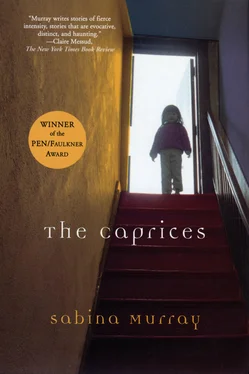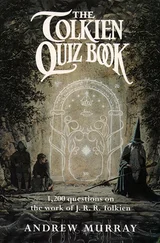12. Angela
My mother tells me sometimes of the beautiful dolls that her father bought her — Shirley Temple, the genuine article, with real golden curls; the eyes closed when you laid her down and they hadn’t forgotten anything, not even the dimples. Where was Shirley now? Where was my mother’s beautiful sharkskin dress with the pleats — very tailored, not like a little girl’s dress at all. Her father had bought her a paper doll one day. Over the course of my childhood I received about fifty. And guess what? They’re all in the basement. My father has trouble with the basement — he says it’s a fire hazard — but I don’t really expect him to understand. From what I gather, his experience of war was Ping-Pong parties in his basement and blanketed windows around Boston.
I think of my eight-year-old mother and of that jeepney. It was headed for Nueva Ecija, the provincial home. My grandfather stood with her and Fernando, surveying the interior. There was just one space for a child. He did not see the gravity of his decision. How could he know when he waved my mother on board that he was consigning his beloved son to a fatal companionship? My mother did not want to leave her father and her brother. She did not want to make the journey without them, but my grandfather said, “Angela, you go. If Fernando goes with you, the two of you will fight.” They never fought after that. I think, in all sympathy, that people tend to feel the most guilt over things for which they are not responsible. My mother ended up in the country, far from the staccato of the rifles and booming mortar.
13. Her Daughter
When I was little she would tell me of this time when she would wander in the peaceful garden singing a song. It went something like “I can’t stop blowing bubbles. .” and she’d waltz around the bushes, beneath the shade of the tamarind tree with her head full of Gregory Peck and Vivien Leigh. Thinking about that now, watching this scene played out from twenty years ago when I, a big-eyed, black-haired child smiled as she danced, I get an odd chill, as if I’m watching a scene out of Whatever Happened to Baby Jane? with an Asian Bette Davis. I hate myself for all the times I’ve been angry at her.
14. My Lola
For some odd reason, I can’t remember my grandmother telling any war stories even though she lived it in the old city shoulder to shoulder with the Japanese. From listening to her, you’d think the war had been one big diet.
“Granddaddy was very, very fat. Then he got very, very skinny.”
“General Wainwright was big, then he got skinny. They called him Skinny Wainwright.”
“I was not so fat, but I got skinny. Very skinny.”
Then she would say, “ Ija , why are you so skinny?”
15. Uncle Jorge, S.J.
My Uncle Jorge, the Jesuit, visited us in Maine last summer. He stayed for a month. He was on sabbatical. He and my mother regressed to the point that at different times I wanted to say, You cut that crap out, or you’ll have hell to pay. If he’s bugging you, why don’t you just go into the other room? Et cetera. They talked about the different maestras who had shown up in the prewar years to teach them Spanish. They talked about Fernando, who had been an angel his whole life and who, as far as they knew, was doing the same thing, only in a better place. They talked about those Japanese shopkeepers who had slipped them pieces of candy in the thirties, then taken their father in the forties. Then one day, during this odd summer of reminiscence, my mother spun around from the sink, where she was up to her elbows in suds, and said, “Remember the heads?” And my uncle nodded for a few seconds. His eyes crinkled at the edges, and little nervous laughs began escaping his mouth. My mother got hit by the same wave. She squatted down in front of the sink so overcome by laughter that she was silent other than the sharp sound of her inhalations. I walked around them both, going, “What?” After my sixth what? went unanswered, I gave up and starting laughing too. I laughed for so long that not only did I feel like I was about to have a heart attack, but I had to go to the bathroom. When I came back, neither of them was laughing; in fact, they both looked a little disturbed. The next morning, over a cup of coffee, my mother informed me that the heads had appeared shortly after the Americans plowed through Manila. They were hanging from every public building, decorating every tree. They were the heads of the Japanese. You learn to laugh, she said. She was not apologetic and I understood.
The Japanese, she told me, would not surrender. To be a prisoner of war meant that you didn’t have the courage to die for the emperor, you were less than a dog. The idea was to keep fighting and never to ask why.
16. A Japanese Soldier
This sounds an awful lot like MacArthur. Dulce et decorum est pro patria mori . If you were a soldier and not of that opinion, he would help you on your way to glory whether you liked it or not. Such a disposition was good for MacArthur because it gave him insight into the Japanese warrior.
What about the last Japanese soldier? You know the one. He was wandering in the jungles of Mindanao all the way into the sixties, carrying his gun and the love for his emperor, and these two things along with some grubs and wild banana had kept him going. Then they found him and sent him home, maybe with a stack of old newspapers — a lot of newspapers. Never mind, he must have had a good deal of reading time in the hospital. That’s a myth actually — not the soldier, but the fact that they found him. If they were looking, they would have found many more people. I know that jungle well. Somewhere, behind a clump of bamboo, are Granddaddy and Tio Jack. In a dark cave are my grandmother, my mother, some uncles and aunts. And if they’d bothered to look at all, they would have found me, because we’re all in that last stronghold of the Pacific Campaign or the Co-Prosperity Sphere, as much a part of the jungle as that Japanese soldier or a banana plant or a mosquito. And the jungle is a part of my family. The war lives and breathes like a congenital virus manifesting itself when one is weak. Some of us are less susceptible than others.
17. My Tita Meli
I will use my mother’s eldest sister as an example. In her mind, people die and that’s okay. During the war, lots of people died, which wasn’t okay, but they would have died anyway. In addition to that, we’re all Catholic, so aren’t we supposed to want to die? Don’t we envy the dead their proximity to God? Besides, the more of the family who are dead, the more people there are to intercede on our behalf.
I’m not sure what Tita Meli was doing during World War II. If her behavior now is any indication, she was probably dispensing wisdom and making sure everyone had something to eat. She married shortly after the war when she was eighteen years old. The man she married — a mestizo doctor — was forty-three. He built her a house, far from the rubble that had once been Intramuros, with a fountain and a garden and graceful Corinthian pillars. He took her to Spain where she bought the chandeliers that hang in the sala. He commissioned their life-size portraits that hang in the drawing room. She lived with her mother-in-law, Feliza, and Granddaddy, who spent his final years in a sprawling apartment in the basement of Tita Meli’s house. Tita Meli and her husband, Tito Jaime, prospered. Or they squandered. It’s hard to say, but they never seemed short of anything. They had five children, the youngest of whom died of a kidney ailment in the sixties. Tito Jaime died five years ago. He was in his eighties. His death had nothing to do with the war, but was caused by a stomach cancer, which, true to the nature of stomachs, consumed from within.
Читать дальше












